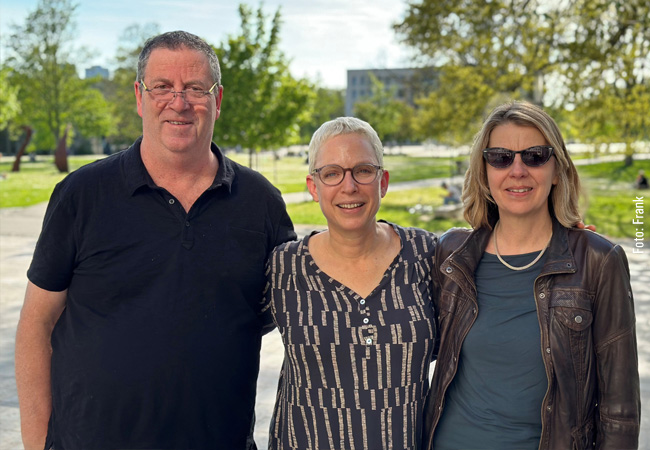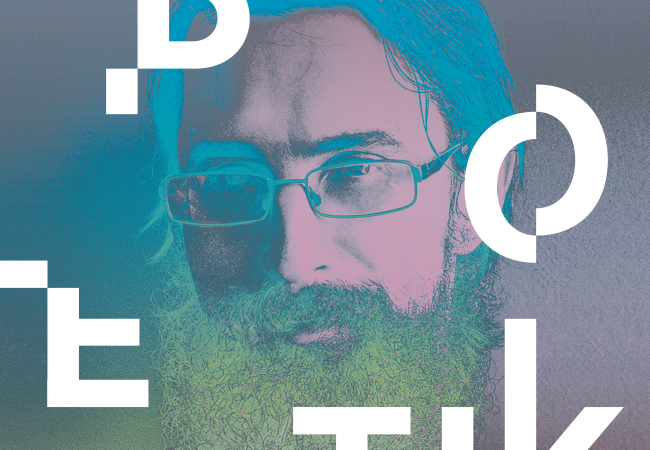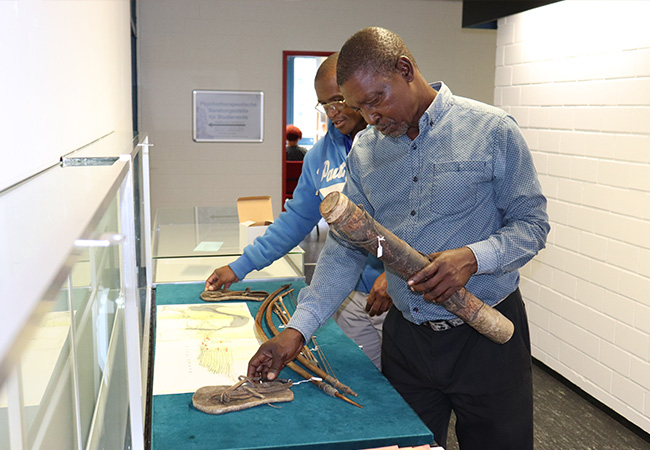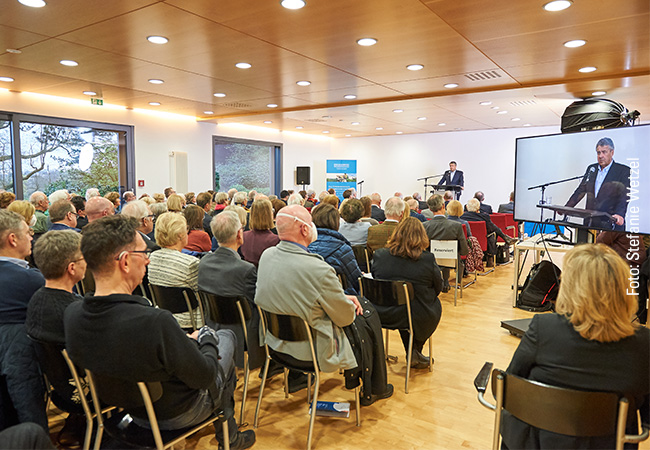As a child of Jewish parents, her father narrowly escaped the Holocaust in Germany. While visiting the country, Israel native Hamutal Ben-Arieh searches for traces of her family in and around Frankfurt.
Hamutal Ben-Arieh brought a file filled with documents, certificates and photos with her from Jerusalem to Frankfurt. While it may seem like a complete family album, the collection contains many gaps and inconsistencies in the life story of her father, Rudolf (later Ruben) Stern.
A citizen of Israel, Hamutal is a kind of storyteller – even though her tales recount the most painful subjects of all. Her stories are about the Holocaust, and she tells them to visitors as part of her work as an educational guide at the Yad Vashem World Holocaust Remembrance Center in Jerusalem. At the end of April, Hamutal accompanied her husband, Hebrew University educational scientist Prof. Asher Ben-Arieh, on a business trip to Frankfurt, where he delivered a seminar on child abuse at Goethe University together with Prof. Sabine Andresen. The seminar was attended by twelve Master’s students from Frankfurt and twelve from Jerusalem, who learn, discuss and develop new ideas together – nothing unusual for young people from Germany and Israel. Hamutal enjoys the young people’s company; she likes observing how easily they get along with their fellow students from a far-off country. “I believe in the good in people,” she stresses during the discussion – even though she has heard, researched and re-told innumerable stories about the horrors of the Holocaust.
Growing up in a children’s home
The roots of her father’s family can be traced back to 18th century Frankfurt. Hamutal has not been able to find out more than that, even though she already inquired at the Jewish Museum Frankfurt. “I guess the family wasn’t registered in any particular Jewish community,” she says. Hamutal wants the story to begin with her grandmother Hedwig Stern, born in Frankfurt in 1910, as the youngest child of Markus and Sophie Stern. Hedwig’s mother died giving birth to another child, and her father was forced to raise the four children himself. In 1933, Hedwig herself gave birth to a child, Hamutal’s aunt Paula, under difficult circumstances. Paula is subsequently placed in Bertha Pappenheim’s children’s home in Neu-Isenburg, near Frankfurt. A famous Jewish social worker and social work theorist, Pappenheim looked after the children of single Jewish mothers, or those facing difficult circumstances. After the birth of her daughter, Hedwig appears to have gone to Wiesbaden-based Rudolf Leithem, a communist activist interned in a labor camp. Both Hedwig’s private and work situation at this time remain blurry.
In 1935 she gives birth to her second child, Rudolf. Two years later, in 1937, Hedwig and Rudolf move into the children’s home in Neu-Isenburg, where – in order to be with her children – Hedwig finds employment. The political situation in Germany continues to deteriorate, and, during the 1938 “Kristallnacht” [Night of Broken Glass, or November pogroms], Neu-Isenburg residents set fire to some buildings belonging to the children’s home. Hedwig decides to flee with the children to Strasbourg, where she manages to place Paula and Rudolf in a convent operating as an orphanage for Christian children. She herself travels on to the Netherlands, where one of her brothers lives with his family. Hedwig moves on to Amsterdam, where she meets several Jews who have fled Germany, including Heinz, whom she marries in 1942. Not long thereafter, the German occupying forces deport the two from the Netherlands to Auschwitz. It is from here that they are (separately) sent on “death marches” – Heinz to Dachau, and Hedwig to Malchow/Ravensbrück. Severely emaciated, both of them die only a few days before the camps are liberated by the Red Army.
From a French convent to a kibbutz
After their mother’s flight to the Netherlands, Paula and Rudolf end up being separated in the convent. It is a painful and dangerous time for them. The occupying Germans regularly search the orphanage for Jewish children, and every time this happens, villagers hide the children in various locations. In the convent, beatings and neglect are the order of the day, and as German Jews, Rudolf and Paula are all the more so at the mercy of the nuns and monks. In 1944, Paula manages to flee, and sets out on a perilous journey over the Pyrenees to Portugal and on to Israel, where she is taken in by a boarding school. Her brother Rudolf is found in 1947, in a deserted chateau in Toulouse together with other orphans. Helpers want to take the Jewish child to Palestine, but the boy is vehemently opposed to the idea. He feels Christian, and has never heard of this far-off country where orange trees are supposed to flower. Rudolf escapes the well-meaning Jewish helpers several times, but finally ends up in Haifa, where he is placed in an orphanage. Here, his name is changed from Rudolf to Ruben, and his beloved cross taken away. At age 18, Ruben joins the army and later a kibbutz, where he meets his future wife. He will go on to become the father of four daughters, but keeps his past to himself for a long time. “At Christmas, my father took me with him to Nazareth – an exotic world for a Jewish girl, full of strange sermons, hymns and smells. I felt that my father was able to open his heart in this familiar, Christian world. I asked him what had happened to his family – I only had grandparents on my mother’s side. It took some time before he was able to talk about that. He always said the Holocaust was not a fit subject for children to hear about,” Hamutal says. “While he was of course right in principle, some stories just have to be told – so they are not forgotten.” When Hamutal started working in Yad Vashem, her father was initially horrified. “But at some point, he became proud of me,” she recounts with a smile.
Her father died five years ago. But Hamutal’s aunt Paula is still alive and recently turned 90. “Whereas once, she didn’t want to know about the story, unlike my father, Paula still thinks about her mother, whom she lost so early. And there’s still a lot she doesn’t know about where she comes from, and who her father was. Because of her advanced age, I don’t want to lose any time and use every opportunity I have to find out more. Maybe there are people in the Frankfurt area who can remember the Stern family, Hedwig, Paula and Rudolf,” Hamutal hopes. Maybe then, one day, she can tell a more compete version of the story of her father’s family.
Anyone wishing to contact Hamutal Ben-Arieh can do so using the following e-mail address hamutalba@gmail.com















